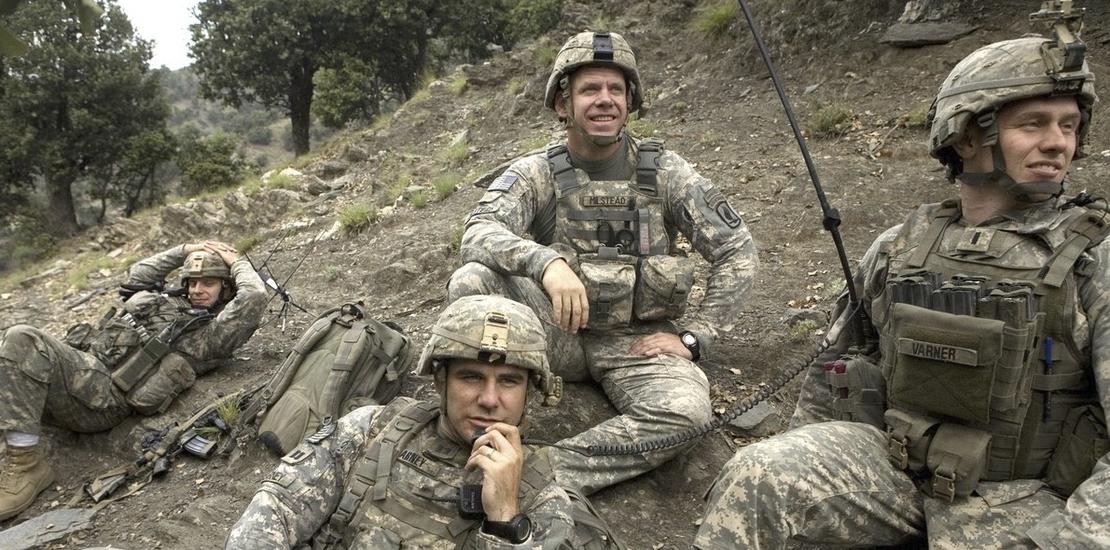A still from ‘Restrepo,’ a 2010 Sundance Film Festival selection.
Claiborne Smith
Although the new opening day format was never intended to be a competition among the three opening night programs, it made me a little antsy: which of the three movies should I go to? I think I chose the right film. Or at least the one that was right for me.
Sebastian Junger and Tim Hetherington, seasoned war correspondents, unveiled Restrepo, their raw, visceral, and even mournful documentary about a small U.S. Army outpost perched on the edge of a hill in Afghanistan’s Korengal Valley, where the most vicious fighting between U.S. troops and the Taliban has been taking place (70% of the ordnance the U.S. has sent to Afghanistan has been used in the Korengal Valley).
Restrepo gets its name from “Doc” Restrepo, the first soldier killed by the Taliban as the platoon inched into Taliban territory in the Korengal. Housing 150 Second Platoon soldiers who were deployed there for 15 months from 2007 into 2008, Restrepo is a dangerous but strangely comforting base for the Americans as they simultaneously kill the Taliban and engage in diplomatic talks with the residents of the Korengal Valley—sometimes successfully, sometimes not—to encourage them to flush out their own family members who’ve sided with the Taliban.
It’s certainly not unique to the fighting in the Korengal Valley, but one of the most harrowing facts about life there for the Americans is that they almost never see their enemy up close, because of the steep, mountainous forest of trees and cunning of the Taliban.
Restrepo is unlike any other documentary about war. It doesn’t let up. With no journalists, politicians, or professors serving as talking heads in the movie and alleviating the sad suspense about which of the soldiers are going to die (seven of them from the Second Platoon end up dying), Junger and Hetherington make us feel as if we know the soldiers well. Taking a total of 10 trips to the Korengal Valley, the two of them went through the usual Army permissions process to become embedded and cover the war, but they kept going back, more than other journalists either want or are allowed to return.
At first, the soldiers were “polite and kind of formal,” Junger said at the Q&A after the opening night premiere. “The next trip there was a lot of combat and that made us all closer, I think. By the third trip, we started to feel like we were part of the platoon. By the end of the year, there was almost no filter anymore—we really were part of the platoon and were very good friends with them,” he said.
Confessing that he became very intimate with fear, Junger revealed that, “one of the things that allowed me to not be really, really scared was the closeness I felt with those guys. Once you’re part of a small group like that, it’s almost an anesthetic against fear, and I think that’s what enables young men to engage in combat without becoming completely paralyzed is the connection they feel with the other men in their unit.” Despite the fact that Restrepo uncovers some embarrassing U.S. Army moments, the Army didn’t censor the film at all, the filmmakers said.
It’s a strange sensation to read about a war almost every day in the news but still feel like you know very little about it. Restrepo reveals how very little most Americans know about the war in Afghanistan, even those us who consider ourselves newshounds. But it also reveals how much we can know.




